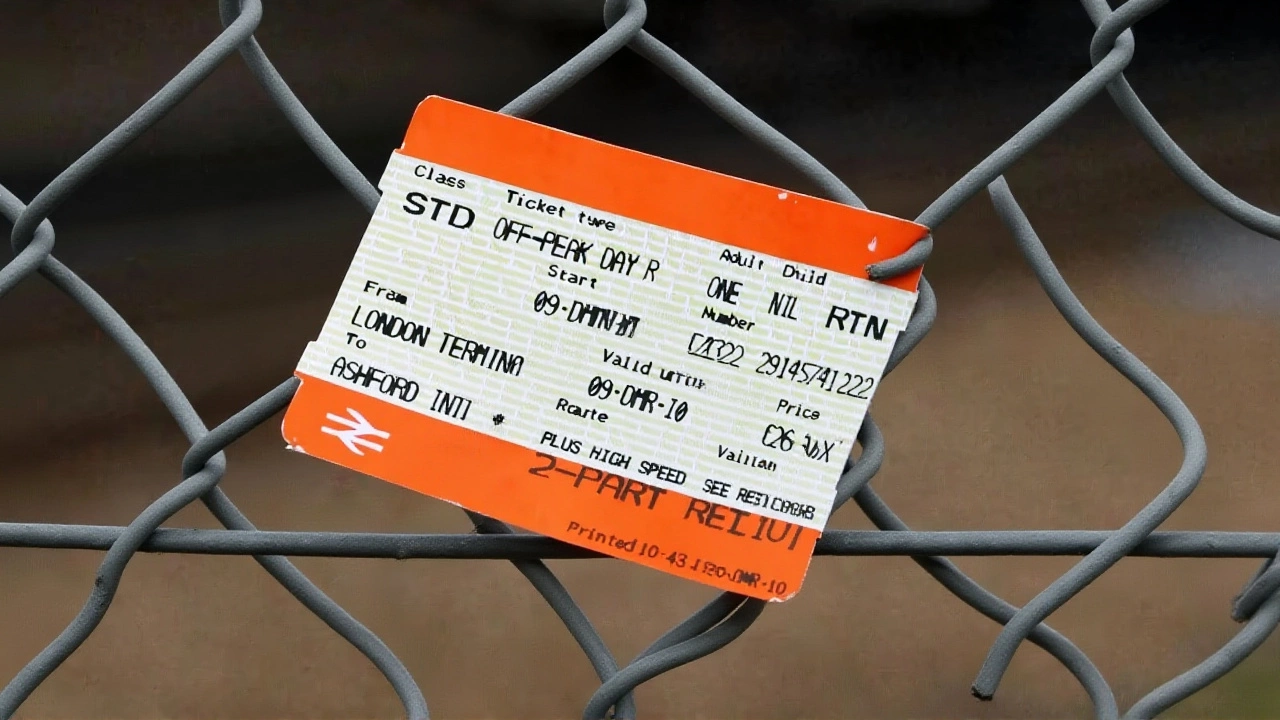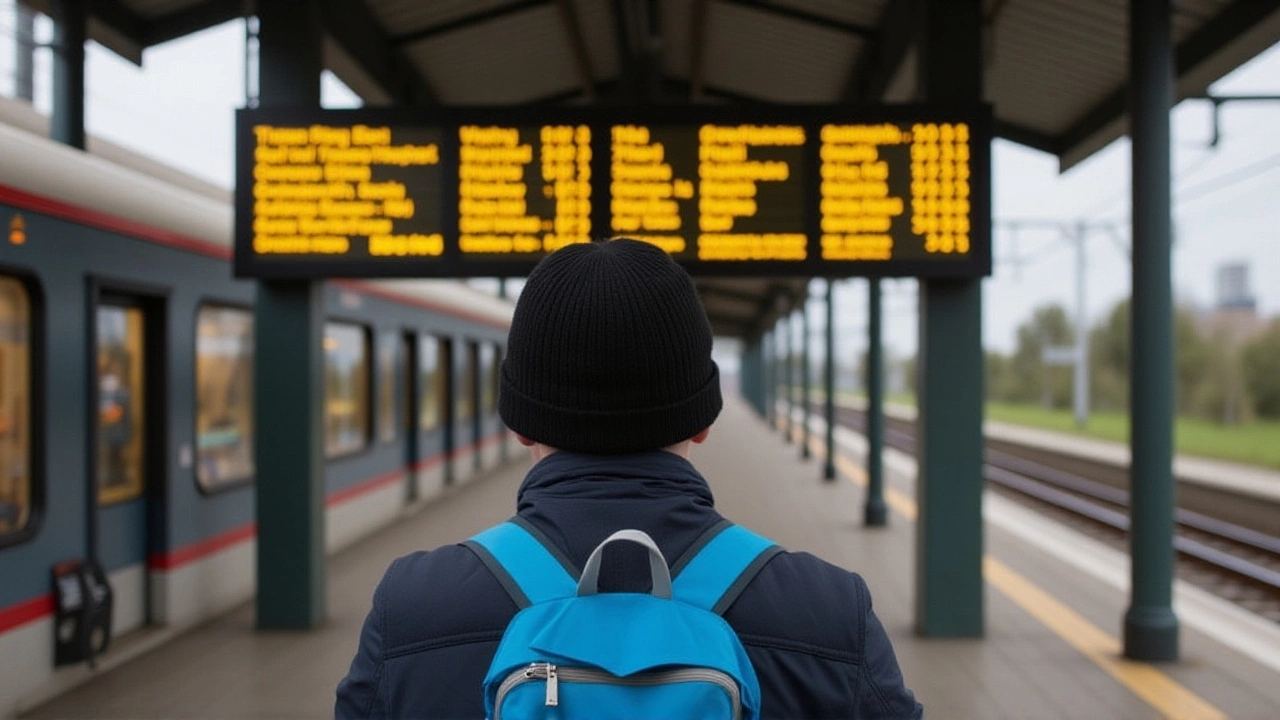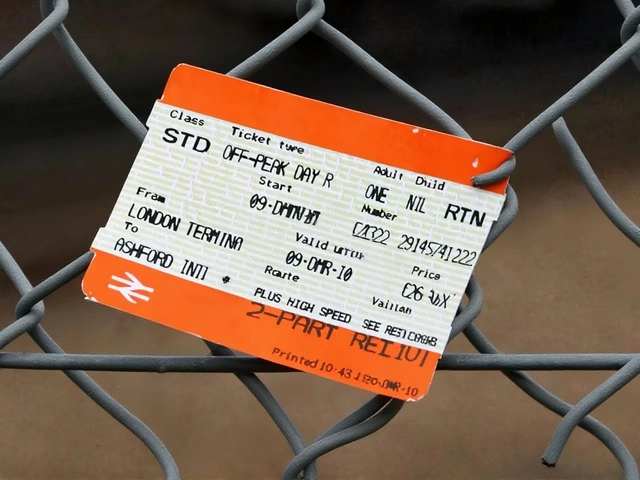RMT Calls 48‑Hour Northern Rail Ticket Staff Strike Over Bullying

When Northern Rail announced a schedule reshuffle for early October, the Rail, Maritime and Transport Union (RMT) was already gearing up for something bigger: a 48‑hour walk‑out by ticket office staff over bullying claims. The strike, set for Northern Rail ticket staff strikeNorthern England, will hit the network just as commuters head back from the summer holidays.
Background to the dispute
The tension stems from contractor arrangements that have long been a thorn in the side of rail workers. While Northern Rail operates the trains, many frontline staff – from ticket clerks to platform assistants – are employed by third‑party firms. The RMT says those workers face "systematic bullying and unfair treatment," a charge that has been echoed in informal surveys but remains largely undocumented in public statements.
On September 18, 2025, the union issued a statement warning of industrial action if negotiations stalled. "We've spent months trying to resolve these issues through dialogue," said Jane Smith, RMT spokesperson for the North. "The lack of progress forces us to take a stand for our members' dignity and safety."
Details of the upcoming strike
The walk‑out will affect ticket offices across a swath of stations spanning Yorkshire, Lancashire, Cumbria and the wider North of England. Roughly 340 stations could see reduced opening hours or complete closures, according to the union’s tally. In Manchester Piccadilly alone, the RMT estimates up to 12,000 daily passengers could be stranded or forced to queue for alternative ticket‑selling machines.
- Date: 7‑8 October 2025 (Monday‑Tuesday)
- Scope: Ticket office staff employed by contractors at ~340 stations
- Impact: Potential cancellation of up to 1,200 services; limited staffing at major hubs
- Passenger advice: Check service updates, use mobile tickets, consider bus alternatives
Neither Northern Rail nor the contracting firms have released detailed responses, beyond a generic promise to "minimise disruption". The union, however, insists the strike will be peaceful and limited to ticket office duties – train drivers and on‑board staff are not slated to walk out.
Impact on passengers
For commuters, the timing is especially cruel. Monday and Tuesday are peak travel days, and many businesses in Manchester, Leeds and Liverpool rely on staff arriving on time. A recent Transport for the North analysis put the economic cost of a single day’s disruption at about £4.2 million in lost productivity.
Passengers with pre‑booked assistance are urged to call the 0800 138 5560 help line. Those who rely on ticket offices for cash transactions may need to seek out self‑service machines, which—while generally reliable—have been known to malfunction during high‑volume periods.
Responses from Northern Rail and Network Rail
Northern Rail posted a short notice on its website, urging travelers to “plan ahead and allow extra travel time.” The statement stopped short of addressing the bullying allegations, instead focusing on contingency timetables that will be drawn up with Network Rail.
Network Rail’s spokesperson, Mark Turner, explained the "Key Route Strategy" that will be activated: major inter‑city services between Manchester, Leeds, Sheffield and Newcastle will retain a skeleton schedule, while many local stopping services will be reduced or cancelled. “Our priority is to keep the backbone of the network running,” Turner said, “but we recognize many passengers will face inconvenience and we apologise for that.”
Wider rail industrial action context
This strike is the latest in a series of disputes that have roiled the UK rail system over the past two years. In 2024, the RMT and ASLEF (train drivers’ union) coordinated a 24‑hour blackout on the West Coast Main Line, affecting over 2 million passengers. Earlier this year, a pay‑related walk‑out by London Underground staff forced a 15 percent reduction in service on the Central line.
Analysts at the Railway Industry Association warn that repeated disruptions could erode public confidence in rail as a reliable mode of transport, especially as the government pushes for a greener, rail‑centric travel agenda.
What’s next?
The RMT says it will review the outcome after the two‑day action and may consider further steps if its concerns are not addressed. Negotiations are slated to resume on 10 October, with a view to reaching a settlement before the end of the month.
For now, passengers are advised to keep an eye on real‑time service updates via the National Rail Enquiries app, check station notice boards, and consider flexible working arrangements where possible.

Frequently Asked Questions
How will the strike affect daily commuters?
Commuters can expect reduced ticket‑office hours at around 340 stations, with many services running on a reduced timetable. In major hubs like Manchester Piccadilly, up to 12,000 passengers a day may face longer waits or need to purchase tickets online or via machines.
What are the RMT’s specific demands?
The union is calling for a formal investigation into alleged bullying, a revision of contractor employment terms, and a clear pathway to bring ticket‑office staff onto Northern Rail’s direct payroll with comparable pay and conditions to other rail staff.
Which stations are likely to close entirely?
Smaller stations in rural Cumbria such as Brampton and Cockermouth are expected to have ticket offices closed, with only platform staff remaining. Larger stations will stay open but with limited windows – usually morning and early afternoon only.
How does this strike fit into the broader rail dispute landscape?
It adds to a string of actions across the UK that have centred on pay, job security and working conditions. The RMT’s focus on contractor staff highlights a newer battleground, as many operators outsource frontline roles to cut costs.
What alternatives should passengers consider?
Travelers are urged to book seats on alternative routes, use bus services that link key cities, or, where possible, work from home. Mobile ticketing apps remain operational, and many stations will still have self‑service machines even if manned counters shut.
